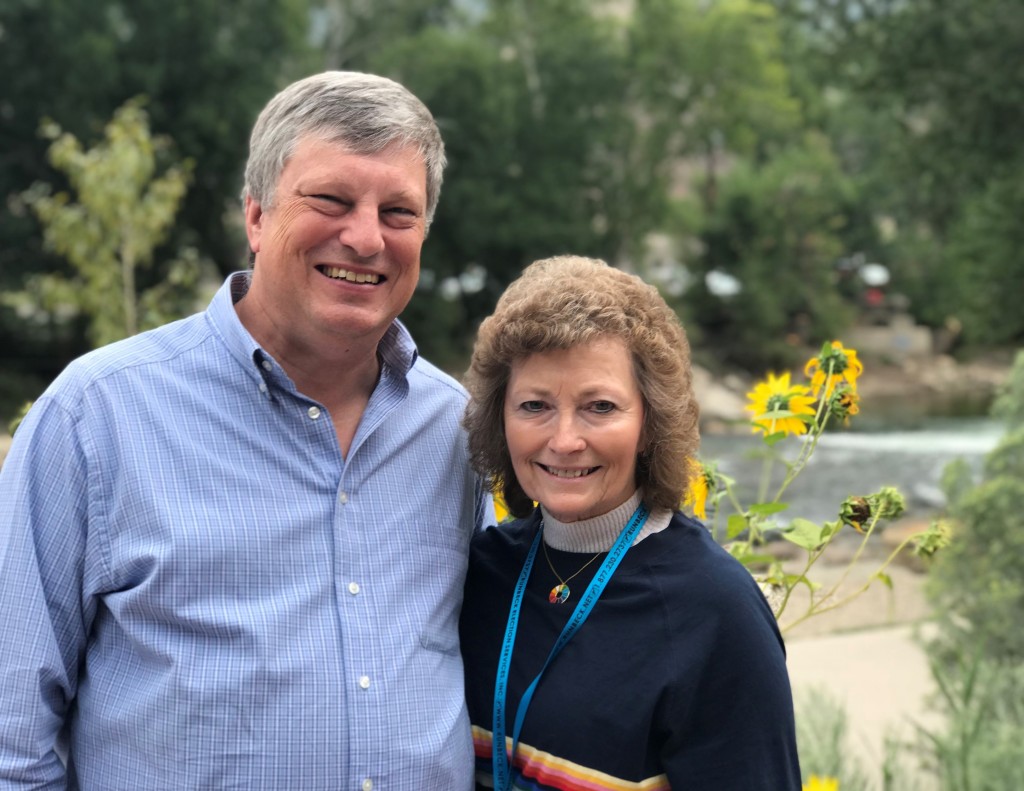Colorado’s county clerks contend with democracy and DRIVES

SALIDA — Colorado’s county clerks gathered in Salida for their summer conference, combining educational workshops on various topics, such as election security, with lighthearted events, including visiting an arcade.
For some, the Colorado County Clerks Association conference was a bittersweet experience — more than one-fourth of the 64 county clerks will run their last election on Nov. 6. Some have decades of experience and have decided it is time to retire; others are term limited or chose not to stay in office.
Secretary of State Wayne Williams updated clerks on a variety of topics his office is handling.
“I served as El Paso County’s clerk and recorder so I understand what our clerks go through. They don’t just run elections. They record documents and register vehicles and more,” Williams said. “Our office is here to help them in any way we can.”
The clerks praised Williams and his staff for their efforts.
Chaffee County Clerk Lori Mitchell, who is president of the clerks association, hosted the event at the Salida SteamPlant Event Center on the Arkansas River.
The conference was smaller than usual as some clerks and staffers stayed behind to catch up, in part because the offices were closed earlier this month when the Colorado Department of Revenue replaced its decades old computer system that handles Motor Vehicle transactions.
The project is called the Colorado Driver License, Record, Identification and Vehicle Enterprise Solution or DRIVES. All clerks but one handle license plate renewals and vehicle registrations and some also issue driver’s licenses.
One day at the conference was spent on Motor Vehicle issues, where Department of Revenue Director Michael Hartman showed up to talk to the clerks about DRIVES. Another day was devoted to election issues, including cyber security.
Judd Choate, the elections director for the state of Colorado, revealed the results of a “phishing exercise,” where, with the cooperation with county clerks from 24 Colorado counties, the U.S. Department of Homeland Security sent each participating county official as many as six fake e-mails.
Every e-mail was opened at least twice and one was clicked on by 19 percent of the county officials.
“These e-mails had links that could have allowed a hacker to take over the participant’s computer — if the phishing attempts were real,” Choate said. “In general the counties did a great job, but there is definitely room for improvement.”
David Becker, the executive director and founder of the Center for Election Innovation & Research, displayed a series of articles on election security that he said were misleading and inaccurate. Dealing with misinformation, he said, is a huge problem and erodes voter confidence.
During Secretary Williams’ presentation, he discussed:
* The success of the UChooseCO program aimed at educating unaffiliated voters about the 2018 primary election. It was the first time they could automatically participate in the primary but they had to choose between the Republican or Democratic ballot or neither one counted. Some officials feared the rejection rate would be as high as 7 percent, but it was 2.36 percent statewide. Williams thanked the clerks for their efforts.
* The Electronic Recording Technology Board, which is housed in the SOS office. The board’s mission is to develop, maintain, improve, replace or preserve land records systems in Colorado, some of which is obsolete.
So far, the board has collected $1.2 million in fees and 17 counties have received $932,000. In the San Luis Valley, Alamosa County received $97,572, Conejos County received $23,000, Costilla County received $109,444 and Saguache County received $181,554.
“This has been a game changer for customer service,” Williams said.
* Legislation passed by the Colorado General Assembly, including a measure supported by the Secretary of State’s office that eliminates redundant language in section on judicial retention. In all, the legislature referred six measures to the Nov. 6 general election ballot. Seven measures were referred by citizens, and the Secretary of State’s office is still processing the signatures.
The conference format was a switch from previous years, where sessions were scheduled at the same time and attendees had to pick and choose which ones to sit in on. A number of clerks liked the change, as well as the non-conference tasting food prepared by local caterers.
The secretary also honored the departing clerks during his presentation. These include Costilla County Clerk Karen Garcia who is term limited.
Four of the retiring clerks have more than 150 years of service between them. They remember hand typing voter registrations and simpler rules before Congress passed the Help America Vote Act after the highly contested 2000 presidential election.



